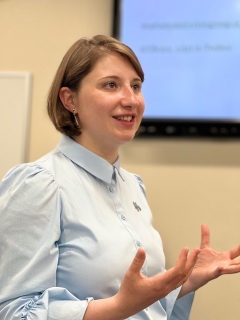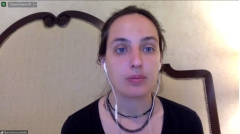Monterey Conversations on Russia’s Wild 1990s and NATO and the EU
| by Mollie Messick MATESOL '21
With Russia’s invasion of Ukraine turning into a war of attrition, Monterey Initiative in Russian Studies (MIR) invited seven experts on Europe, NATO, and Russia for two online panel discussions devoted to probing underexplored causes and consequences of the war.


